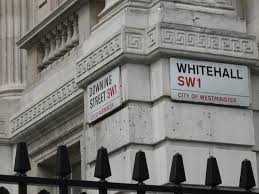7 April 2022
Bring Back Cummings
Civil Service review.
By John Watson

If you read William Hague’s fascinating biography of Pitt the Younger you cannot but be struck by the fundamental importance of Pitt’s fiscal reforms. His reorganisation of the financial and tax systems was so well thought through and so badly needed that his budget speeches could draw plaudits from the opposition as well as his own party, and that at a time when politics were even more aggressive than they are now. In part their acclamation by the likes of Edmund Burke, one of the leading intellectuals of the opposition, is down to their lucidity, Pitt’s intellectual and oratorical powers being such that he could deliver long speeches on complex subjects without notes and make them comprehensible to his audience. But in addition to that, the subject matter – the rationalisation of state finance – meant that they were important both to the party of government and to those who might govern in the future; they touched on the machinery of government and solved problems which affected everybody.
There seems to be similar problems with government machinery at the moment, not in relation to finance but rather in relation to the general effectiveness of the public service. It was no surprise to read that the number of visas issued to Ukrainian refugees had fallen way below the intended target or that staff from the DVLA were moonlighting when at home in isolation. No one seems to question the extraordinary fact that to deliver sufficient Covid vaccines the government had to use an outsider rather than working through the Health Service. Michael Gove, the government’s chief reformer, referred to the civil service as a “blob”. Dominic Cummings, who was clearly not a fool whatever you may think about his behaviour, regarded the reform of the civil service as a top priority. Ministers complain that when they pull policy handles nothing happens and those who deal with the DHSS will tell you stories of disabled people being required to attend unnecessary examinations which it is virtually impossible for them to get to.
This sort of complaint is not new, of course, and Henry Brooke, when Home Secretary, received the following verse from a frustrated colleague:
“The mills of God grind slowly,
but they grind exceeding small;
at the Home Office, dear Henry,
they do not grind at all.”
Even so there does seem to be a lot of it about at the moment and civil service reform is surely something which should be right up at the top of the politicians’ in trays. Running the civil service is not easy, of course. The civil servant takes his or her instructions from politicians who may be guided more by the attractions of a soundbite than by whether what they are proposing is realistic; the job of guiding a gung ho and possibly thick minister must be a tricky one and once a policy has been announced there is often little that can be done to avoid the road accident which may be waiting down the track. Politicians are not generally systems people, the only scientist to become Prime Minister in living memory being Margaret Thatcher, and, since the main qualification job is the ability to sell yourself to the electorate, that is not something which is likely to change. It must be difficult then to transform their utterings into reality. Still, it has to be done and just as in Pitt’s day the upgrading of financial systems was essential to the health of the nation, so reviewing the way in which the civil service performs is essential now.
Of course there is a minister for the Civil Service, the Conservative MP for Uxbridge and South Ruislip as it happens. Does he spend the watches of the night tossing and turning as he wrestles with issues of civil service recruitment and reporting lines? Possibly not because he has other responsibilities to distract him. That of being Prime Minister and First Lord of the Treasury, for example, because the Minister for the Civil Service is always the Premier.
In a way that says it all. Prime ministers are busy men and hardly likely to give the subject of civil service performance the focus which it deserves. On the other hand it is important that the public administration is kept in order and that difficult issues are publicly discussed. Movement between the public and private sectors, comparators of pay and pensions against those in industry, dismissal for failure, there are of course rules governing all these things but in view of the concerns which have been expressed regarding the ability of the civil service to deliver, a broad review is probably called for and, since the civil service is politically neutral and will serve whatever party is in office, that review should clearly be cross party. Still, that leaves the question of who should lead it. Let us think for a moment. They need to be intelligent, not to suffer fools gladly, intellectually aggressive, willing to take on vested interest and not to be in the pocket of either party leader. On the other hand it is a non-partisan technical assignment so they don’t have to be sensitive, tactful or attractive to voters. I know!
Bring back Dominic Cummings!


